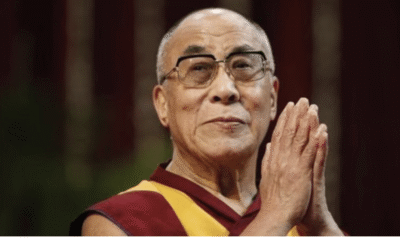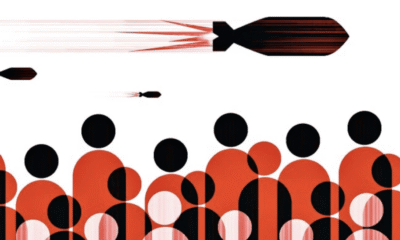
|
Getting your Trinity Audio player ready...
|
All through his life, Gandhi fought for the rights of people. Whether in South Africa or in London or back home in India, Gandhi’s struggles were for the people who were helpless, politically, economically and socially. Gandhi launched major agitations against the oppressive colonists in South Africa as well as in India for securing the rights of all sections of the subject people. His Non-Cooperation Movement of the 1920s was for securing the religious rights of the Muslims for the restoration of the Khilafat as much as for opposing the Rowlatt Act meant to incarcerate Indians indefinitely without trial and securing justice for the victims of the Jallianwala Bagh massacre. Gandhi’s nationwide campaigns included the fight against poverty, caste injustices including untouchability, and securing greater freedom for women. He motivated millions of downtrodden people to rise up and revolt for securing their rights and dignity. He was a source of inspiration to countless leaders who fought for the rights of their fellow citizens in different parts of the world including Martin Luther King, Nelson Mandela, Julius Nyerere and Bishop Desmond Tutu.
But, when Dr Julian Huxley, the biologist turned internationalist who became the first Secretary-General of the United Nations Educational and Scientific Organisation (UNESCO), wrote to him through Jawahar Lal Nehru seeking suggestions for the ‘theoretical basis for the rights of man’, Gandhi’s reply was quite intriguing. He was dismissive about the rights discourse itself.
In the run-up to the Universal Declaration of Human Rights by the United Nations, Dr Huxley had reached out to 150 eminent thinkers across the world for their opinions on “the utility of a universal instrument of human rights and whether different conceptions of human rights could be reconciled into a single universal document”. His letter went to Nehru, who regretted that he “cannot find the time for any quiet consideration or writing” but promised to forward it to Gandhi as desired by Huxley.
Gandhi too was busy. But he found time in a moving train on May 25, 1947. “I learnt from my illiterate but wise mother that all rights to be deserved and preserved came from duty well done. Thus, the very right to live accrues to us only when we do the duty of citizenship of the world. From this one fundamental statement, perhaps it is easy enough to define the duties of man and woman and correlate every right to some corresponding duty to be first performed. Every other right can be shown to be a usurpation hardly worth fighting for”, Gandhi wrote back. Gandhi always held duties above rights and believed that by fulfilling one’s duties one can protect the rights of the other and there is no other way.
As World War II was raging, English author and statesman H. G. Wells solicited Gandhi’s support for his proposed bill of rights defining war aims. Gandhi responded through a cable to Wells with the recommendation that he should write a ‘cosmopolitan charter of duties instead — a statement of what citizens of the world owe to each other’. “Received your cable. Have carefully read your five articles. You will permit me to say you are on the wrong track. I feel sure that I can draw up a better charter of rights than you have drawn up. But what good will it be? Who will become its guardian? If you mean propaganda or popular education you have begun at the wrong end. I suggest the right way.”
“Begin with a charter of Duties of Man and I promise the rights will follow as spring follows winter. I write from experience. As a young man, I began life by seeking to assert my rights and I soon discovered I had none – not even over my wife. So I began by discovering and performing my duty by my wife, my children, my friends, companions and society and I find today that I have greater rights perhaps than any living man I know. If this is too tall a claim, then I say I do not know anyone who possesses greater rights than I”, Gandhi wrote.
Gandhi’s utmost commitment was to ‘Ahimsa’ – non-violence. He believed that it was his fundamental duty. “Non-violence is the first article of my faith. It is also the last article of my creed”, he declared when spelling out the rationale for calling off the Non-Cooperation Movement immediately after the violent incidents at Chauri Chaura and Bombay (Mumbai). He was clear that rights cannot be achieved through rejection of duties.
Gandhi was fighting ‘an evil foreign power’ in his own words. Yet, he was insistent that the duty of non-violence cannot have any exception, for that matter any other civic or national duty. That’s why he was there with his army of volunteers to help governments during the times of war, sometimes in a medical corps, as a civic duty and some other times to assist the army as a national duty.
Gandhian ways can be debated but not the Gandhian principles. Ambedkar had insisted in his last speech to the Constituent Assembly that methods like ‘civil disobedience, non-cooperation and satyagraha’ must be abandoned. But unfortunately, we hung on to the methods that Gandhi deployed against an evil foreign power even after our own governments came to power. And we simply discarded the principles behind those methods deployed by Gandhi.
Gandhi was not alive when the Universal Declaration of Human Rights was adopted on December 10, 1948. He was not alive when the Indian Constitution was adopted on January 26, 1950, either. Despite Gandhi’s insistence, the Indian Constitution didn’t enumerate the duties of citizens at the time of its adoption. Primacy was given to Fundamental Rights as in the American Constitution which begins with the Bill of Rights. After much deliberation, a set of Directive Principles had been included as a ‘State Policy’. During the infamous Emergency, the only positive thing Indira Gandhi did was to include Article 51-A in the Indian Constitution as part of the 42nd Amendment highlighting ten Fundamental Duties of the citizens. However, they are not justiciable even to this day.
Adopting Gandhian methods from dress to actions may make one a follower of Gandhi. But following Gandhi’s principles makes one a true Gandhian.
(This article was originally published by Chintan-India Foundation Blogs on the occasion of Gandhi’s 73rd death anniversary on January 30, 2021. Views expressed are personal.)



